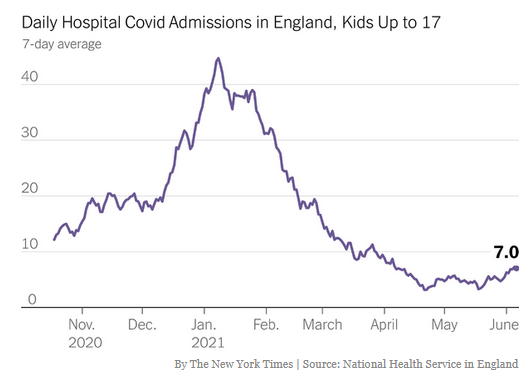
A park in El Paso this week.Ivan Pierre Aguirre for The New York Times
By David Leonhardt
The unvaccinated
For most American adults, the Covid-19 situation is now straightforward. Vaccine shots are widely available, and once you’ve had one, Covid no longer needs to dominate your life. You are unlikely to contract any form of the virus and are virtually guaranteed not to suffer serious symptoms.
You can socialize with friends, indoors or outdoors. You don’t need to wear a mask to protect yourself or others. For you, Covid has come to resemble a mild flu that you are unlikely to get.
For children under 12, however, the situation is more complicated. They are not yet eligible to receive a vaccine. And with the spread of the Delta variant of the virus, many parents are understandably anxious. Over the past week, I’ve received emails and social media messages from some of those parents, asking for help in thinking about Delta. I will try to provide it today.
How bad is Delta?
As each new coronavirus variant has emerged, people have feared that it would be a game-changer — resistant to the vaccines or vastly more serious. So far, though, all the variants have been much more similar to the original version of the virus than they have been different.
The vaccines are effective on all of them, and many of the early fears about severity of variant symptoms have not been borne out. That’s why some public-health experts use the term “scariants.”
Delta does appear to be worse than most, as I described in Monday’s newsletter. It may be the worst variant yet, in terms of contagiousness and severity. Yet it also seems to be in the same broad range as the earlier ones.
Consider this data from England, where Delta is already widespread. Covid-related hospitalizations of children have risen from their lows of a few weeks ago, but the increases are not large:

The best assumption seems to be that Delta will be modestly worse for children than earlier versions of the virus. “I haven’t seen data to make me particularly worried about Delta in kids,” Jennifer Nuzzo, a Johns Hopkins epidemiologist, told me.
Covid vs. car trips
This evidence suggests that serious versions of Covid will continue to be extremely rare in children.











